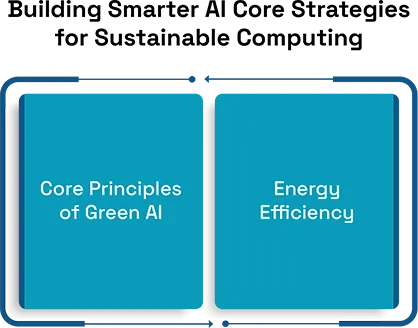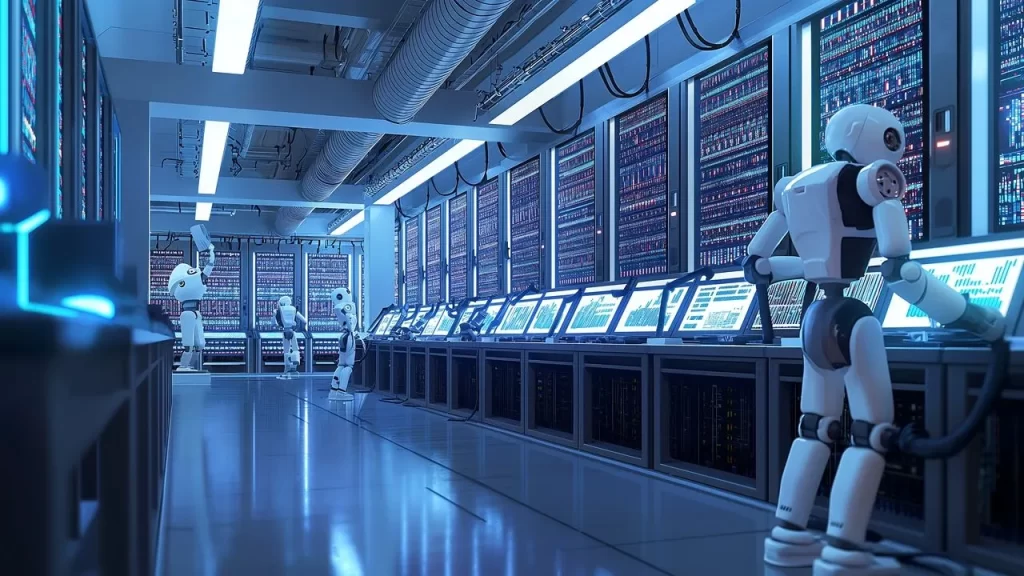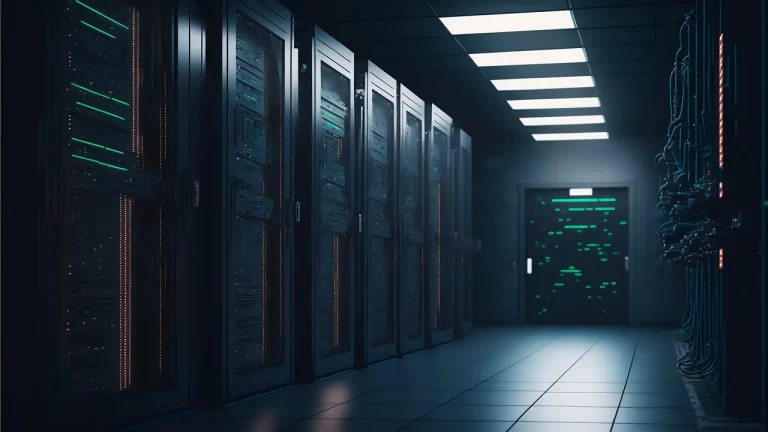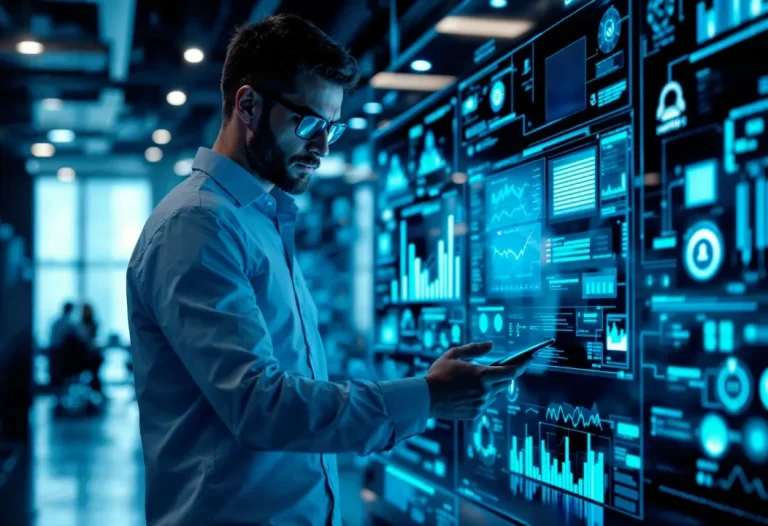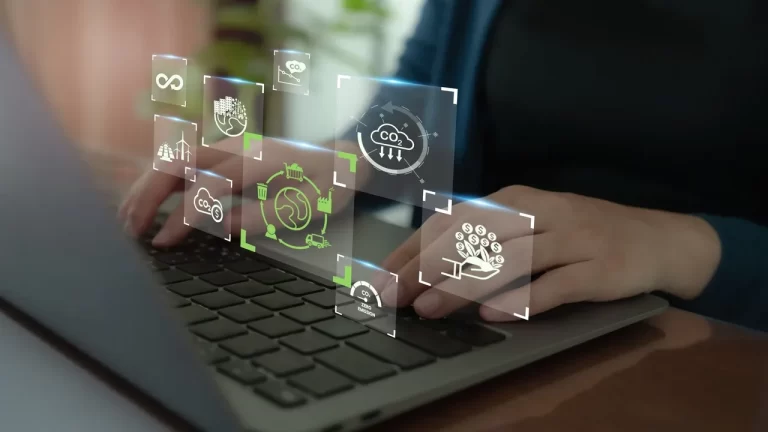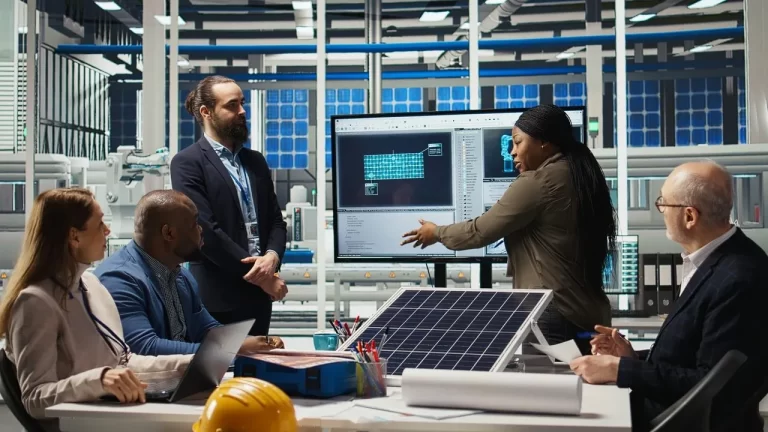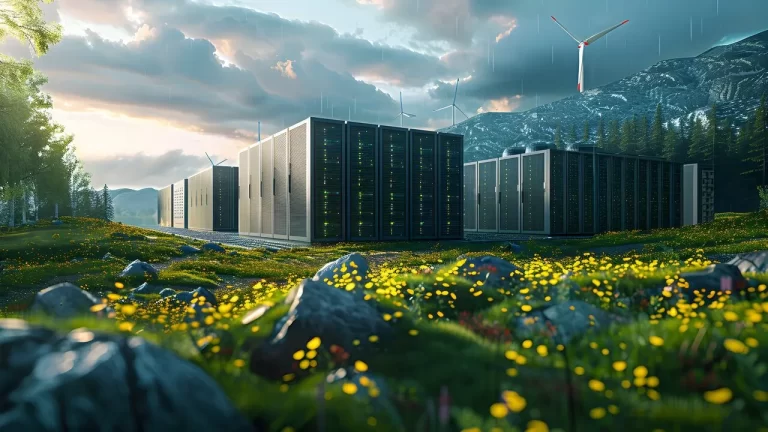AI is contributing to changes in industries, but this is possible only because it uses energy from many large data centers. With companies like Microsoft increasing AI data center spending, the carbon footprint is growing. To reduce this, businesses are turning to data center optimization techniques and automation software to improve efficiency.
This is where Green AI comes in. Also known as sustainable or Net Zero AI, it aims to lower the environmental impact of AI. New technologies in 2025 like smarter cooling and energy tracking helped more green data centers support AI. Now, about 32% of AI tasks run on low-carbon systems—making AI smarter and greener at the same time.
Traditional AI vs. Green AI: A World of Difference
Traditional AI concentrate on accuracy but uses more energy, especially in data centers where AI models are trained. Without efficient data center cooling systems, energy use and carbon emissions grow. Even big names like Microsoft data centers and Google database centers face challenges because traditional AI often ignores energy efficiency.
Green AI changes this by prioritizing sustainability. It supports and maintains using ENERGY STAR data centers, low PUE data centers, and innovative methods like immersion cooling data centers to save energy. In 2025, data center sustainability trends led companies like Equinix and other largest data center companies to adopt greener tech, helping AI perform well while protecting the environment.
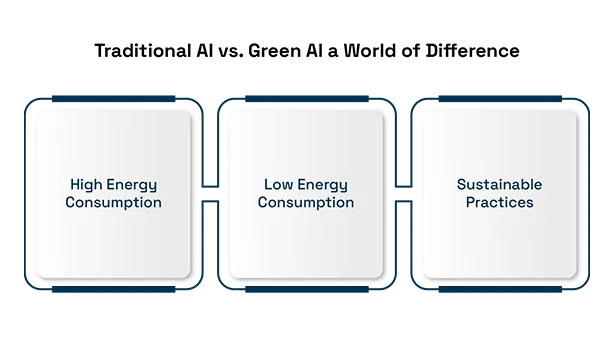
AI Powering Innovation but at What Cost?
AI is driving innovation across the world but at what cost? A study from ScienceDirect highlights AI’s growing hunger for energy. As AI tools such as large language models (LLMs) become more advanced, they require more data and computing power. But this increase in number size doesn’t always mean a big jump in accuracy. Tools including ChatGPT are impressive, but they also come with a high environmental price.
Behind the scenes, these models are powered by huge data centers that run 24/7, using enormous amounts of electricity. There is growing concern about how much carbon it takes to train and run machine learning models. That’s why it’s important to focus on smarter, energy-efficient AI data center development. With the rise of Green AI, we have the chance to keep high-tech technology without harming the planet.
AI Data Centers: Energy Efficient or Energy Draining?
Data centers are the hidden engines behind AI. Often called the “cloud,” they are real physical facilities used to store, process, and move data. These centers need a huge amount of power, making them one of the biggest sources of energy use for Big-Tech companies.
Not all data centers are the same. Small computer rooms handle basic tasks, while larger enterprise data centers support more complex operations. The biggest ones—hyperscale data centers—are owned by tech giants and built to handle very large workloads. These centers use the most energy because of their high hardware density. Now, a new type is growing fast: AI hyperscale data centers, designed specifically for training AI models and running machine learning. These use powerful GPUs and need advanced cooling systems, which means even more energy used. Since smaller centers can’t keep up, demand for these AI-ready facilities continues to rise.
Why Does Green AI Matter?
The way AI affects the environment is no longer just speculation; it stands out now. Technologies such as cryptocurrency mining have already shown how unchecked digital growth can lead to massive energy use and environmental strain.
Now, focusing on solutions, Green AI offers a way to change this pattern. When developed correctly, AI assists the planet by more effectively managing energy, reducing squander and streamlining the supply chain process. AI can instead help make progress toward a carbon-free future.
Using innovation to make AI more sustainable, Green AI allows us to satisfy growing cloud computing requirements with less impact on our environment.
Building Smarter AI: Core Strategies for Sustainable Computing
Core Principles of Green AI
A smart approach to AI performs strongly and consumes less energy at the same time. Let’s make certain that AI resolves problems related to climate change and does not make them worse. As a result, AI should help energy saving and lower carbon emissions in society.
Energy Efficiency
Green AI data center supports building AI models that use less power. Developers can use smaller models or methods like pruning, quantization, and model distillation to lower the computing load. These techniques make AI faster and greener without losing performance.
Hardware Optimization
Using efficient hardware like advanced GPUs or TPUs (which offer more power per watt) reduces energy use. When multiple cores are used, you can run programs faster while reducing the effect on the environment. The use of edge computing means some data is handled close by, often on devices or at edge data centers, instead of sending everything to the cloud. For IoT devices, it is especially helpful and usually uses less energy than regular cloud computing data centers.
Data Center Optimization
A big part of Green AI is improving how data center operations are managed. Leading data center companies, including Google and Microsoft, now power their cloud and AI services with renewable energy. Besides, they rely on smart devices to control how much stress is put on servers, manage cooling, and use less power. Thanks to these methods, both cloud and edge data centers have become more eco-friendly and use less energy for AI.
